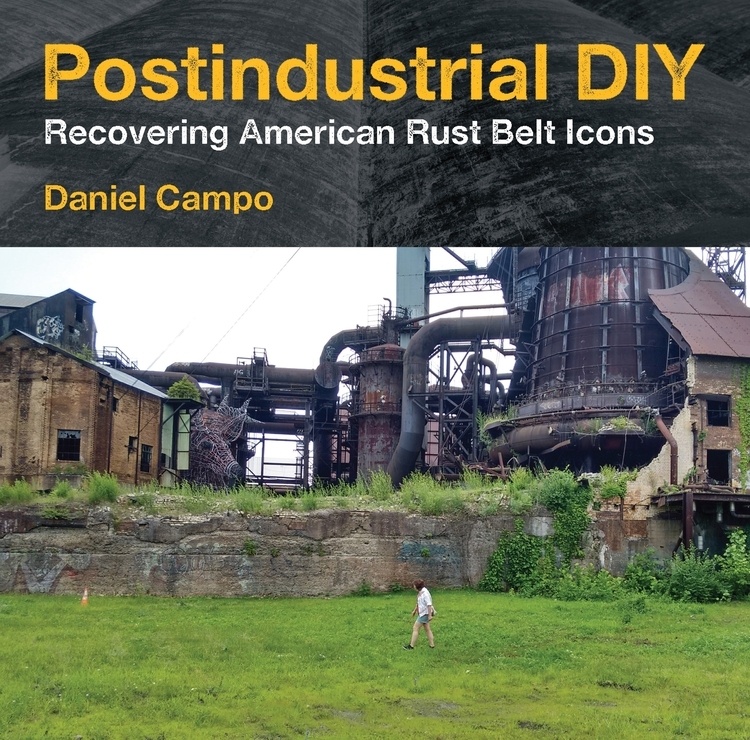
Events
Daniel Campo, "Postindustrial DIY"

A pioneering Detroit automobile factory. A legendary iron mill at the edge of Pittsburgh. A campus of concrete grain elevators in Buffalo. Two monumental train stations, one in Buffalo, the other in Detroit. These once-noble sites have since fallen from their towering grace. As local elected leaders did everything they could to destroy what was left of these places, citizens saw beauty and utility in these industrial ruins and felt compelled to act. Postindustrial DIY tells their stories.
The culmination of more than a dozen years of on-the-ground investigation, ethnography, and historical analysis, author and urbanist Daniel Campo immerses the reader in this postindustrial landscape, weaving the perspectives of dozens of DIY protagonists as well as architects, planners, and preservationists. Working without capital, expertise, and sometimes permission in a milieu dominated by powerful political and economic interests, these do-it-yourself actors are driven by passion and a sense of civic duty rather than by profit or political expediency. They have craftily remade these sites into collective preservation projects and democratic grounds for arts and culture, environmental engagement, regional celebrations, itinerant play, and in-the-moment constructions. Their projects are generating excitement about the prospect of Rust Belt life, even as they often remain invisible to the uninformed passerby and fall short of professional preservation or environmental reclamation standards.
Daniel Campo is an urbanist and associate professor and chair of the Department of Graduate Built Environment Studies in the School of Architecture and Planning at Morgan State University in Baltimore, Maryland. He also serves as the director of Morgan’s graduate program in City and Regional Planning. He is the author of Postindustrial DIY: Recovering American Rustbelt Icons (Fordham University Press, 2024) and The Accidental Playground: Brooklyn Waterfront Narratives of the Undesigned and Unplanned (Fordham University Press, 2013). Possessing diverse research interests, he has also written articles about urban design and development, public space studies, urban parks, historic preservation, history of the built environment, downtown revitalization, waterfront studies and public art. The recipient of several awards and distinctions, he earned a National Endowment for the Humanities Research Fellowship (2010-11) and was recognized as Morgan State University’s most outstanding scholar in 2015. He holds a Ph.D. in City and Regional Planning from the University of Pennsylvania and a Master of Urban Planning from Hunter College and was previously a planner for the New York City Department of City Planning.
Copies of Postindustrial DIY will be available for purchase on site from the MIT Press Bookstore.

